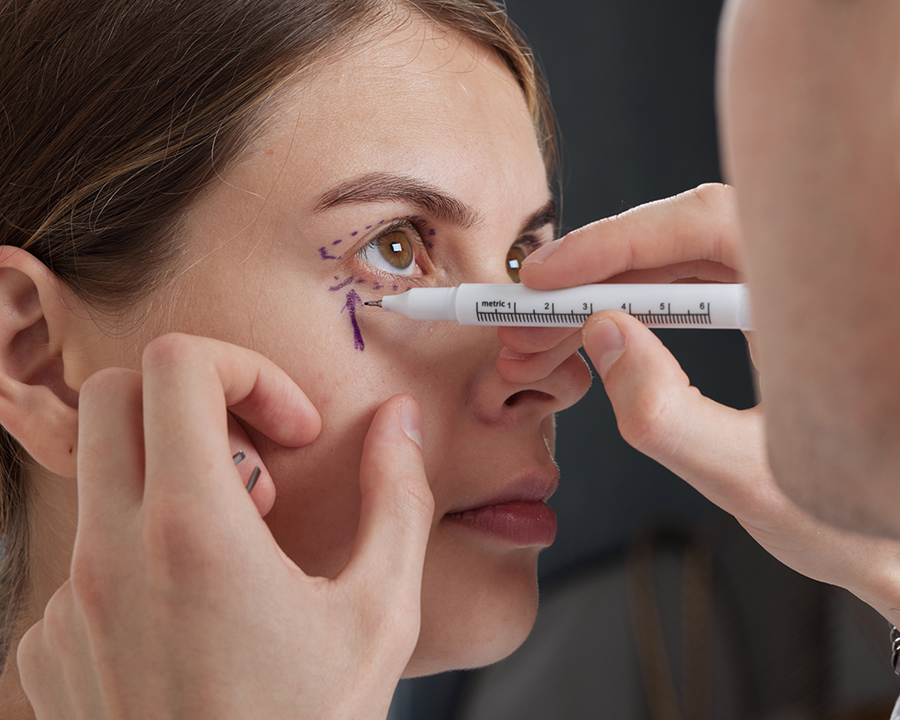
What is Blepharoplasty?
As we age, excess skin and fat (puffiness) can appear on the upper and lower eyelids. In the upper eyelids, this may result in obstruction of the peripheral vision, decreased contrast sensitivity, and the illusion that the eyes are smaller. The eyes may also feel tired or like they want to close on their own. A person may feel they look sad, tired or angry when they are not. In the lower eyelids, fat can bulge forward creating the appearance of a “bag.” The surgical procedure used to reverse some of these aging changes to the eyelids is called a blepharoplasty. This is one of the most common aesthetic surgical procedures performed in the country. When performed by the right surgeon, the result should be a natural-looking, more rested, appearance. After an upper eyelid blepharoplasty, peripheral vision and contrast sensitivity should improve significantly.
Upper Eyelid Blepharoplasty
An upper eyelid blepharoplasty consists of removing some excess skin and fat to give the appearance that the eyes are wider open and to create a more youthful appearance to the eye area. During this procedure, the incision is made in the crease (fold) of the eyelid and is typically imperceptible a few months after surgery. During a lower eyelid blepharoplasty, a small amount of fat is often removed through an incision on the inside of the eyelid. Often the skin of the lower eyelid is treated with a laser or chemical peel at the same time to help tighten and rejuvenate it. A ptosis (“droopy eyelid”) repair or brow surgery can be done at the same time as blepharoplasty, if necessary. Blepharoplasty is often combined with brow surgery, Botox® and facial fillers to give an optimal result.
Outpatient Procedure
Both procedures are performed either in the office or in an outpatient surgical center. Patients typically experience minimal pain and bruising around the eyes may last two weeks. Both men and women often undergo blepharoplasty. During your surgical consultation, board-certified, fellowship-trained ophthalmologist Dr. Zamecki will discuss a customized surgical plan that is most appropriate for you. Katherine J. Zamecki-Vedder, MD, FACS performs hundreds of blepharoplasties a year and also offer surgery using a CO2 laser (laser blepharoplasty), which minimizes bruising and swelling associated with surgery. The laser can also be used for skin resurfacing, a technique very often used in combination with surgery to rejuvenate the lower eyelids.
Get Started
An upper eyelid blepharoplasty may be covered by your insurance. Call 203-791-2020 to schedule your blepharoplasty evaluation with Katherine J. Zamecki-Vedder, MD, FACS.
